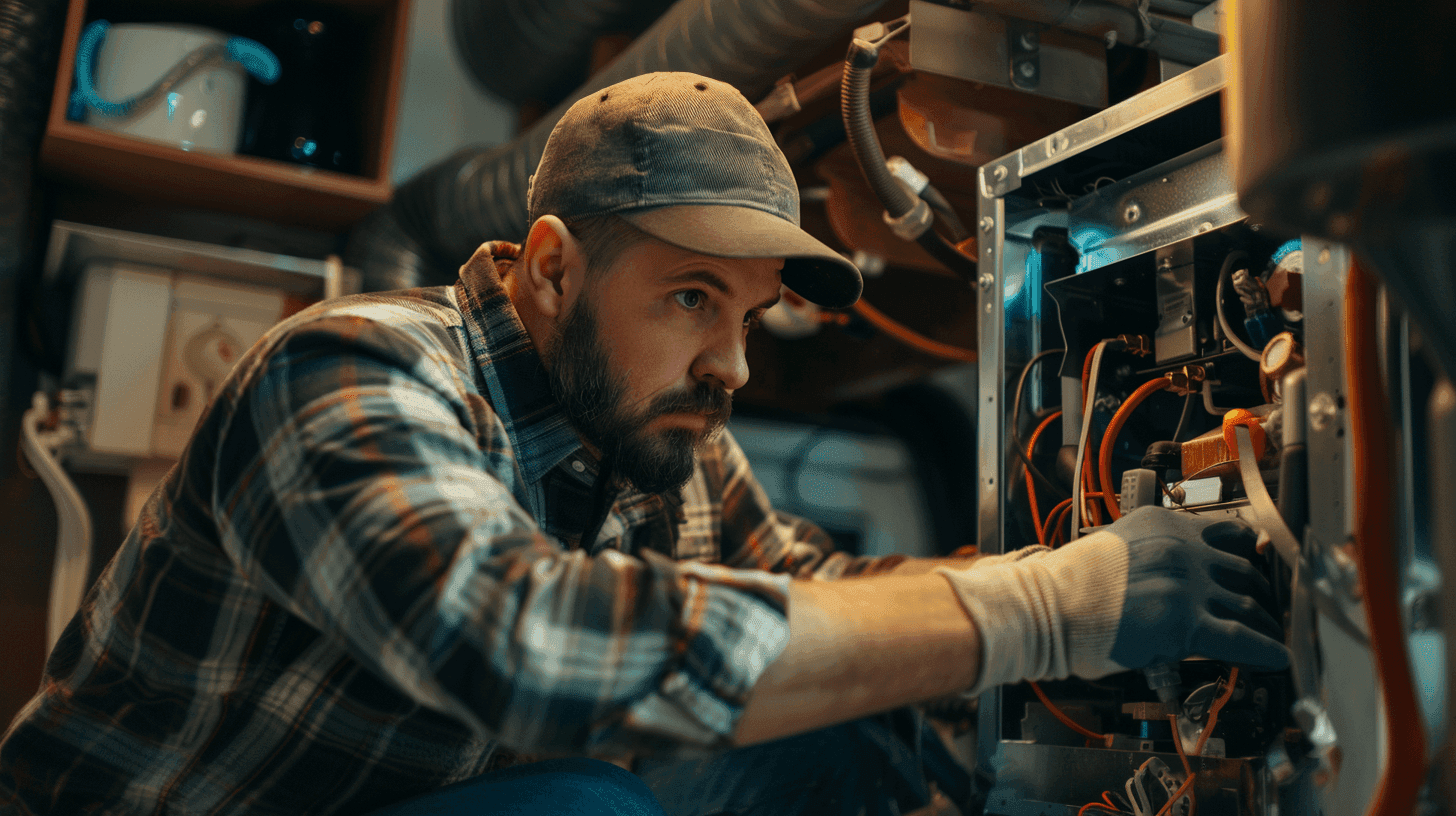HVAC Replacement Costs in Cary, NC

Replacing your HVAC system can be a smart investment in your home, resulting in lower energy bills and increased comfort. But since the average homeowner only replaces their home comfort system about every 15 years, how do you know how much it costs? HVAC.com explores the local dynamics affecting the cost of HVAC replacement in Cary, NC, the lifespan of various system types, and what to consider before your next upgrade.
What’s the Lifespan of an HVAC System in Cary?
Located in the heart of the Piedmont region, Cary, NC, experiences a humid subtropical climate with hot summers and mild winters which can place significant demands on HVAC systems, especially air conditioners. Factors such as usage patterns, maintenance history, and local weather conditions can all play a significant role in the lifespan of heating and cooling systems.
Air Conditioners
Air conditioners typically have a lifespan of about 15 years. However, Cary’s hot and humid climate causes air conditioners to run almost constantly during the summer months, which can lead to faster wear and tear and a slightly shorter lifespan than the national average.
Cary’s high humidity levels can also lead to moisture-related issues such as corrosion and mold growth. This, too, can potentially shorten the lifespan of air conditioning systems if they’re not properly maintained and repaired.
Heat Pumps
Heat pumps – which have a lifespan of about 10 to 15 years – are a popular choice for Cary, NC, homeowners because they provide both heating and cooling, allowing them to operate year-round. Standard heat pumps typically work efficiently in temperatures as low as freezing.
A heat pump’s efficiency and lifespan can be affected by the demand for both heating and cooling and the frequency of defrost cycles during colder months. To increase their lifespan, it's crucial to perform regular maintenance tasks like changing filters and cleaning coils.
Furnaces
Gas furnaces typically last between 15 to 20 years, while electric furnaces average 20-30 years. Since winters in Cary are relatively mild, furnaces here may not undergo as much stress as in colder regions, leading to longer lifespans.
However, fluctuations in temperature and humidity levels can still affect a furnace’s performance and longevity. Regular maintenance, including inspecting the heat exchanger and burner, is crucial for ensuring safe and efficient operation, especially in climates where furnaces may not be used as frequently.
Factors that Affect the Cost of HVAC Replacement in Cary, NC
- Your Home: Larger homes require HVAC systems with a larger heating and cooling capacity, versus smaller homes, which can drive up installation costs. If your home requires extensive ductwork modifications or has unique architectural features, replacement costs may be higher due to the complexity of the installation.
- System Efficiency: High-efficiency HVAC systems often come with a higher upfront cost compared to standard-efficiency models. North Carolina is in the southeast region of the country, which has higher SEER2 efficiency requirements than northern states. This can elevate the cost of air conditioners, heat pumps, and ductless mini-split equipment.
- Brand and Model: There are dozens of HVAC makes and models and they all vary in price, features, and quality. While reputable brands may come with a higher price tag, they often offer better reliability, efficiency, and warranty coverage, which can contribute to long-term savings and homeowner peace of mind.
- Additional Features: While including additional features such as smart thermostats, air purifiers, or zoning systems can enhance comfort and energy efficiency, they increase the overall cost of HVAC replacement. Carefully weigh the pros and cons of adding additional features.
- Warranty and Maintenance Plans: Opting for extended warranties and maintenance plans can also add to the upfront cost of HVAC replacement. However, they can provide potential savings on repair and maintenance expenses.
- Rebates and Tax Credits: Available tax credits and rebates can help mitigate upfront costs and make heating and cooling replacement more affordable. Many utility companies and government agencies offer incentives for installing energy-efficient HVAC systems for additional savings opportunities.
HVAC Replacement Costs in Cary, NC
Here are the prices you can expect to pay for an HVAC system in a 2,000-square-foot home in Cary:
1. Central Air Conditioners
Replacing a 3-ton central air conditioning system costs about $5,500. The system’s efficiency, size, and the complexity of the installation all impact the price of a new air conditioner.
2. Heat Pumps
The price of a new, 3-ton air-source heat pump system in Cary, NC, averages about $5,900, depending on factors such as system size, efficiency rating, and installation requirements.
3. Furnaces
A new, 80% efficiency, 50,000 BTU gas furnace in Cary, NC, costs homeowners about $4,200.
The Cost to Install New Ductwork in Cary
Unfortunately, many homeowners often forget about their ductwork during the HVAC installation process. Before investing in a new HVAC system, have a professional inspect your existing ductwork to see if it needs to be replaced. Over the years, air ducts – which typically have a lifespan of 15-20 years – can develop leaks or come apart. Installing ducts alongside your new HVAC system ensures compatibility which will improve efficiency, performance, and overall comfort.
Expect to pay between $5,400 and $6,600 for new ductwork in a 2,000-square-foot home in Cary with a 3-ton HVAC system.